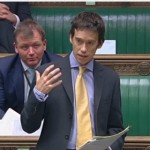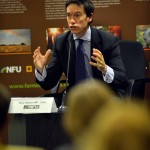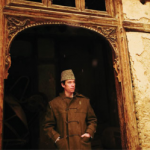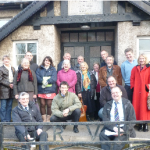Article first published in the London Review of Books in July 2009.
We are accustomed to seeing Afghans through bars, or smeared windows, or the sight of a rifle: turbaned men carrying rockets, praying in unison, or lying in pools of blood; boys squabbling in an empty swimming-pool; women in burn wards, or begging in burqas. Kabul is a South Asian city of millions. Bollywood music blares out in its crowded spice markets and flower gardens, but it seems that images conveying colour and humour are reserved for Rajasthan.
Barack Obama, in a recent speech, set out our fears:
The Afghan government is undermined by corruption and has difficulty delivering basic services to its people. The economy is undercut by a booming narcotics trade that encourages criminality and funds the insurgency . . . If the Afghan government falls to the Taliban – or allows al-Qaida to go unchallenged – that country will again be a base for terrorists who want to kill as many of our people as they possibly can . . . For the Afghan people, a return to Taliban rule would condemn their country to brutal governance, international isolation, a paralysed economy, and the denial of basic human rights to the Afghan people – especially women and girls. The return in force of al-Qaida terrorists who would accompany the core Taliban leadership would cast Afghanistan under the shadow of perpetual violence.
When we are not presented with a dystopian vision, we are encouraged to be implausibly optimistic. ‘There can be only one winner: democracy and a strong Afghan state,’ Gordon Brown predicted in his most recent speech on the subject. Obama and Brown rely on a hypnotising policy language which can – and perhaps will – be applied as easily to Somalia or Yemen as Afghanistan. It misleads us in several respects simultaneously: minimising differences between cultures, exaggerating our fears, aggrandising our ambitions, inflating a sense of moral obligations and power, and confusing our goals. All these attitudes are aspects of a single worldview and create an almost irresistible illusion.
It conjures nightmares of ‘failed states’ and ‘global extremism’, offers the remedies of ‘state-building’ and ‘counter-insurgency’, and promises a final dream of ‘legitimate, accountable governance’. The path is broad enough to include Scandinavian humanitarians and American special forces; general enough to be applied to Botswana as easily as to Afghanistan; sinuous and sophisticated enough to draw in policymakers; suggestive enough of crude moral imperatives to attract the Daily Mail; and almost too abstract to be defined or refuted. It papers over the weakness of the international community: our lack of knowledge, power and legitimacy. It conceals the conflicts between our interests: between giving aid to Afghans and killing terrorists. It assumes that Afghanistan is predictable. It is a language that exploits tautologies and negations to suggest inexorable solutions. It makes our policy seem a moral obligation, makes failure unacceptable, and alternatives inconceivable. It does this so well that a more moderate, minimalist approach becomes almost impossible to articulate. Afghanistan, however, is the graveyard of predictions. None of the experts in 1988 predicted that the Russian-backed President Najibullah would survive for two and a half years after the Soviet withdrawal. And no one predicted at the beginning of 1994 that the famous commanders of the jihad, Hekmatyar and Masud, then fighting a civil war in the centre of Kabul, could be swept aside by an unknown group of madrassah students called the Taliban. Or that the Taliban would, in a few months, conquer 90 per cent of the country, eliminate much corruption, restore security on the roads and host al-Qaida.
It is tempting to assume that economic growth will not make Afghanistan into Obama’s terrorist haven or Brown’s strong democracy but rather into something more like its wealthier neighbours. Iran, Turkmenistan, Uzbekistan, Tajikistan, Pakistan and Afghanistan were at various points under the same Muslim empires. There are Persian, Turkmen, Uzbek and Tajik populations in Afghanistan, and the Afghan Pushtun are only arbitrarily divided by the Durand Line from their Pakistani kinsmen. The economies are linked and millions of Afghans have studied and worked in Iran or Pakistan. There are more reasons for Afghanistan to develop into a country like one of its neighbours than for it to collapse into Somalian civil war or solidify into Malaysian democracy. But Iran, Turkmenistan, Uzbekistan, Tajikistan and Pakistan present a bewildering variety of states: an Islamist theocracy, a surreal mock-tribal autocracy, a repressive secular dictatorship, a country trembling on the edge of civil war, a military dictatorship cum democracy. And it will be many years before Afghanistan’s economy or its institutions draw level with those of its neighbours.
Pakistan, which is often portrayed as a ‘failed state’, has not only the nuclear bomb and the Directorate for Inter-Services Intelligence but also the Friday Times and the National College of Arts. Progressive views are no longer confined to the wealthy Lahore elite: a mass commercial satellite television station championed a campaign to overturn the hududordinances, which conflated adultery and rape; 1500 women were released from jail as a result. There is no equivalent in Afghanistan of the Pakistani lawyers’ movement, which reinstated the chief justice after his dismissal by Musharraf.
Every Afghan ruler in the 20th century was assassinated, lynched or deposed. The Communist government tried to tear down the old structures of mullah and khan; the anti-Soviet jihad set up new ones, bolstered with US and Saudi cash and weapons supplied from Pakistan. There is almost no economic activity in the country, aside from international aid and the production of illegal narcotics. The Afghan army cannot, like Pakistan’s, reject America’s attempt to define national security priorities; Afghan diplomats cannot mock our pronouncements. Karzai is widely criticised, but more than seven years after the invasion there is still no plausible alternative candidate; there aren’t even recognisable political parties.
Obama’s new policy has a very narrow focus – counter-terrorism – and a very broad definition of how to achieve it: no less than the fixing of the Afghan state. He presents this in a formal syllogism. The final goal in the region is to disrupt, dismantle and defeat al-Qaida in Pakistan and Afghanistan, and to prevent their return to either country in the future.
A necessary condition of the defeat of al-Qaida is the defeat of the Taliban because if the Afghan government falls to the Taliban . . . that country will again be a base for terrorists who want to kill as many of our people as they possibly can.
Such efforts are hampered by the nature of the Afghan economy and government. We must implement a counter-insurgency strategy, which includes the deployment of 17,000 troops [to] take the fight to the Taliban in the south and the east but also adopt a more ‘comprehensive approach’, aiming to promote a more capable and accountable Afghan government . . . advance security, opportunity and justice . . . develop an economy that isn’t dominated by illicit drugs.
Finally, Afghanistan cannot be addressed without addressing Pakistan:
To defeat an enemy that heeds no borders or laws of war, we must recognise the fundamental connection between the future of Afghanistan and Pakistan.
Or, in the pithier statement made by Obama last October:
In order to catch Osama bin Laden we have to win in Afghanistan and stabilise Pakistan.
Obama, then, combines a negative account of Afghanistan’s past and present – he describes the border region as ‘the most dangerous place in the world’ – with an optimism that it can be transformed. He assumes that we have a moral justification and obligation to intervene, that the US and its allies have the capacity to address the threat and that our global humanitarian and security objectives are consistent and mutually reinforcing.
Afghanistan was ‘the right war’. In Iraq, one could criticise the breaking of international law, the lies about weapons of mass destruction, the apparent corruption of contractors, the anarchy in Baghdad and the torture at Abu Ghraib. But the intervention in Afghanistan was a response to 9/11, sanctioned by international law and a broad coalition; the objectives were those of self-defence and altruism. Al-Qaida has killed and continues to try to kill innocent citizens, and it is right to prevent them. It is also right to defeat the Taliban, to bring development and an effective legitimate state to Afghanistan, and to stabilise Pakistan. The elected Afghan government and the majority of the Afghan people support our presence. And the international community has the capacity to transform the situation.
Policymakers perceive Afghanistan through the categories of counter-terrorism, counter-insurgency, state-building and economic development. These categories are so closely linked that you can put them in almost any sequence or combination. You need to defeat the Taliban to build a state and you need to build a state to defeat the Taliban. There cannot be security without development, or development without security. If you have the Taliban you have terrorists, if you don’t have development you have terrorists, and as Obama informed the New Yorker, ‘If you have ungoverned spaces, they become havens for terrorists.’
These connections are global: in Obama’s words, ‘our security and prosperity depend on the security and prosperity of others.’ Or, as a British foreign minister recently rephrased it, ‘our security depends on their development.’ Indeed, at times it seems that all these activities – building a state, defeating the Taliban, defeating al-Qaida and eliminating poverty – are the same activity. The new US army and marine corps counter-insurgency doctrine sounds like a World Bank policy document, replete with commitments to the rule of law, economic development, governance, state-building and human rights. In Obama’s words, ‘security and humanitarian concerns are all part of one project.’
This policy rests on misleading ideas about moral obligation, our capacity, the strength of our adversaries, the threat posed by Afghanistan, the relations between our different objectives, and the value of a state. Even if the invasion was justified, that does not justify all our subsequent actions. If 9/11 had been planned in training camps in Iraq, we might have felt the war in Iraq was more justified, but our actions would have been no less of a disaster for Iraqis or for ourselves. The power of the US and its allies, and our commitment, knowledge and will, are limited. It is unlikely that we will be able to defeat the Taliban. The ingredients of successful counter-insurgency campaigns in places like Malaya – control of the borders, large numbers of troops in relation to the population, strong support from the majority ethnic groups, a long-term commitment and a credible local government – are lacking in Afghanistan.
General Petraeus will find it difficult to repeat the apparent success of the surge in Iraq. There are no mass political parties in Afghanistan and the Kabul government lacks the base, strength or legitimacy of the Baghdad government. Afghan tribal groups lack the coherence of the Iraqi Sunni tribes and their relation to state structures: they are not being driven out of neighbourhood after neighbourhood and they do not have the same relation to the Taliban that the Sunni groups had to ‘al-Qaida in Iraq’. Afghans are weary of the war but the Afghan chiefs are not approaching us, seeking a deal. Since the political players and state structures in Afghanistan are much more fragile than those in Iraq, they are less likely to play a strong role in ending the insurgency.
Meanwhile, the Taliban can exploit the ideology of religious resistance that the West deliberately fostered in the 1980s to defeat the Russians. They can portray the Kabul government as US slaves, Nato as an infidel occupying force and their own insurgency as a jihad. Their complaints about corruption, human rights abuses and aerial bombardments appeal to a large audience. They are attracting Afghans to their rural courts by giving quicker and more predictable rulings than government judges.
Like some Afghan government officials, the Taliban have developed an ambiguous and sometimes profitable relationship with the drug lords. They are able to slip back and forth across the Pakistani border and receive support there. They have massacred Alokozai elders who tried to resist them. They are mounting successful attacks against the coalition and the Afghan government in the south and east. They are operating in more districts than in 2006 and control provinces, such as Wardak, which are close to Kabul. They have a chance of retaking southern district towns such as Musa Qala and perhaps even some provincial capitals.
But the Taliban are very unlikely to take over Afghanistan as a whole. Their previous administration provided basic road security and justice but it was fragile and fell quickly. They are no longer perceived, as they were by some in 1994, as young student angels saving the country from corruption. Millions of Afghans disliked their brutality, incompetence and primitive attitudes. The Hazara, Tajik and Uzbek populations are wealthier, more established and more powerful than they were in 1996 and would strongly resist any attempt by the Taliban to occupy their areas. The Afghan national army is reasonably effective. Pakistan is not in a position to support the Taliban as it did before. It would require far fewer international troops and planes than we have today to make it very difficult for the Taliban to gather a conventional army as they did in 1996 and drive tanks and artillery up the main road to Kabul.
Even if – as seems most unlikely – the Taliban were to take the capital, it is not clear how much of a threat this would pose to US or European national security. Would they repeat their error of providing a safe haven to al-Qaida? And how safe would this safe haven be? They could give al-Qaida land for a camp but how would they defend it against predators or US special forces? And does al-Qaida still require large terrorist training camps to organise attacks? Could they not plan in Hamburg and train at flight schools in Florida; or meet in Bradford and build morale on an adventure training course in Wales?
Furthermore, there are no self-evident connections between the key objectives of counter-terrorism, development, democracy/ state-building and counter-insurgency. Counter-insurgency is neither a necessary nor a sufficient condition for state-building. You could create a stable legitimate state without winning a counter-insurgency campaign (India, which is far more stable and legitimate than Afghanistan, is still fighting several long counter-insurgency campaigns from Assam to Kashmir). You could win a counter-insurgency campaign without creating a stable state (if such a state also required the rule of law and a legitimate domestic economy). Nor is there any necessary connection between state-formation and terrorism. Our confusions are well illustrated by the debates about whether Iraq was a rogue state harbouring terrorists (as Bush claimed) or an authoritarian state which excluded terrorists (as was in fact the case).
It is impossible for Britain and its allies to build an Afghan state. They have no clear picture of this promised ‘state’, and such a thing could come only from an Afghan national movement, not as a gift from foreigners. Is a centralised state, in any case, an appropriate model for a mountainous country, with strong traditions of local self-government and autonomy, significant ethnic differences, but strong shared moral values? And even were stronger central institutions to emerge, would they assist Western national security objectives? Afghanistan is starting from a very low base: 30 years of investment might allow its army, police, civil service and economy to approach the levels of Pakistan. But Osama bin Laden is still in Pakistan, not Afghanistan. He chooses to be there precisely because Pakistan can be more assertive in its state sovereignty than Afghanistan and restricts US operations. From a narrow (and harsh) US national security perspective, a poor failed state could be easier to handle than a more developed one: Yemen is less threatening than Iran, Somalia than Saudi Arabia, Afghanistan than Pakistan.
Yet the current state-building project, at the heart of our policy, is justified in the most instrumental terms – not as an end in itself but as a means towards counter-terrorism. Obama is clear about this:
I want the American people to understand that we have a clear and focused goal: to disrupt, dismantle and defeat al-Qaida in Pakistan and Afghanistan, and to prevent their return to either country in the future. That’s the goal that must be achieved.
In pursuit of this objective, Obama has so far committed to building ‘an Afghan army of 134,000 and a police force of 82,000’, and adds that ‘increases in Afghan forces may very well be needed.’ US generals have spoken openly about wanting a combined Afghan army-police-security apparatus of 450,000 soldiers (in a country with a population half the size of Britain’s). Such a force would cost $2 or $3 billion a year to maintain; the annual revenue of the Afghan government is just $600 million. We criticise developing countries for spending 30 per cent of their budget on defence; we are encouraging Afghanistan to spend 500 per cent of its budget.
Some policymakers have been quick to point out that this cost is unsustainable and will leave Afghanistan dependent for ever on the largesse of the international community. Some have even raised the spectre (suggested by the example of Pakistan) that this will lead to a military coup. But the more basic question is about our political principles. We should not encourage the creation of an authoritarian military state. The security that resulted might suit our short-term security interests, but it will not serve the longer interests of Afghans. What kind of anti-terrorist tactics would we expect from the Afghan military? What kind of surveillance, interference and control from the police? We should not assume that the only way to achieve security in a developing country is through the restriction of civil liberties, or that authoritarianism is a necessary phase in state-formation, or a precondition for rapid economic development, or a lesser evil in the fight against modern terrorism.
After seven years of refinement, the policy seems so buoyed by illusions, caulked in ambiguous language and encrusted with moral claims, analogies and political theories that it can seem futile to present an alternative. It is particularly difficult to argue not for a total withdrawal but for a more cautious approach. The best Afghan policy would be to reduce the number of foreign troops from the current level of 90,000 to far fewer – perhaps 20,000. In that case, two distinct objectives would remain for the international community: development and counter-terrorism. Neither would amount to the building of an Afghan state. If the West believed it essential to exclude al-Qaida from Afghanistan, then they could do it with special forces. (They have done it successfully since 2001 and could continue indefinitely, though the result has only been to move bin Laden across the border.) At the same time the West should provide generous development assistance – not only to keep consent for the counter-terrorism operations, but as an end in itself.
A reduction in troop numbers and a turn away from state-building should not mean total withdrawal: good projects could continue to be undertaken in electricity, water, irrigation, health, education, agriculture, rural development and in other areas favoured by development agencies. We should not control and cannot predict the future of Afghanistan. It may in the future become more violent, or find a decentralised equilibrium or a new national unity, but if its communities continue to want to work with us, we can, over 30 years, encourage the more positive trends in Afghan society and help to contain the more negative.
Such arguments seem strained, unrealistic, counter-intuitive and unappealing. They appear to betray the hopes of Afghans who trusted us and to allow the Taliban to abuse district towns. No politician wants to be perceived to have underestimated, or failed to address, a terrorist threat; or to write off the ‘blood and treasure’ that we have sunk into Afghanistan; or to admit defeat. Americans are particularly unwilling to believe that problems are insoluble; Obama’s motto is not ‘no we can’t’; soldiers are not trained to admit defeat or to say a mission is impossible. And to suggest that what worked in Iraq won’t work in Afghanistan (or that what worked in postwar West Germany or 1950s Souh Korea won’t work in Afghanistan) requires a detailed knowledge of each country’s past, a bold analysis of the causes of development and a rigorous exposition of the differences, for which few have patience.
Sober, intelligent ambassadors who were sceptical about Iraq presided over the troop surge in Afghanistan. Aid agencies, human rights activists and foreign correspondents have not opposed it. Politicians – Republican and Democrat, Conservative and Labour – have voted for it; the United Nations, Nato and Washington think-tanks support it. And finally, many Afghans encourage it, enthusiastically.
The fundamental assumptions remain that an ungoverned or hostile Afghanistan is a threat to global security; that the West has the ability to address the threat and bring prosperity and security; that this is justified and a moral obligation; that economic development and order in Afghanistan will contribute to global stability; that these different objectives reinforce each other; and that there is no real alternative. One indication of the enduring strength of such assumptions is that they are exactly those made in 1868 by Sir Henry Rawlinson, a celebrated and experienced member of the council of India, concerning the threat of a Russian presence in Afghanistan:
In the interests, then, of peace; in the interests of commerce; in the interests of moral and material improvement, it may be asserted that interference in Afghanistan has now become a duty, and that any moderate outlay or responsibility we may incur in restoring order at Kabul will prove in the sequel to be true economy.
The new UK strategy for Afghanistan is described as:
International . . . regional . . . joint civilian-military . . . co-ordinated . . . long-term . . . focused on developing capacity . . . an approach that combines respect for sovereignty and local values with respect for international standards of democracy, legitimate and accountable government, and human rights; a hard-headed approach: setting clear and realistic objectives with clear metrics of success.
This is not a plan: it is a description of what we have not got. Our approach is short-term; it has struggled to develop Afghan capacity, resolve regional issues or overcome civilian-military divisions; it has struggled to respect Afghan sovereignty or local values; it has failed to implement international standards of democracy, government and human rights; and it has failed to set clear and realistic objectives with clear metrics of success. Why do we believe that describing what we do not have should constitute a plan on how to get it? (Similarly, we do not notice the tautology in claiming to ‘overcome corruption through transparent, predictable and accountable financial processes’.)
In part, it is because the language is comfortingly opaque. We can expose Rawlinson’s blunt calculus of national interest by questioning the costs, the potential gains or the likelihood of success. But a bewildering range of different logical connections and identities can be concealed in a specialised language derived from development theory and overlaid with management consultancy. What is concealed is our underlying assumption that when we want to make other societies resemble our (often fantastical) ideas of our own society, we can. The language of modern policy does not help us to declare the limits to our power and capacity; to concede that we can do less than we pretend or that our enemies can do less than we pretend; to confess how little we know about a country like Afghanistan or how little we can predict about its future; or to acknowledge that we might be unwelcome or that our presence might be perceived as illegitimate or that it might make things worse.
We claim to be engaged in a neutral, technocratic, universal project of ‘state-building’ but we don’t know exactly what that means. Those who see Afghanistan as reverting to the Taliban or becoming a traditional autocratic state are referring to situations that existed there in 1972 and 1994. But the international community’s ambition appears to be to create something that has not existed before. Obama calls it ‘a more capable and accountable Afghan government’. The US White Paper calls it ‘effective local governance’ and speaks of ‘legitimacy’. The US, the UK and their allies agreed unanimously at the Nato 60th anniversary summit in April to create ‘a stronger democratic state’ in Afghanistan. In the new UK strategy for Afghanistan, certain combinations of adjective and noun appear again and again in the 32 pages: separated by a few pages, you will find ‘legitimate, accountable state’, ‘legitimate and accountable government’, ‘effective and accountable state’ and ‘effective and accountable governance’. Gordon Brown says that ‘just as the Afghans need to take control of their own security, they need to build legitimate governance.’
What is this thing ‘governance’, which Afghans (or we) need to build, and which can also be transparent, stable, regulated, competent, representative, coercive? A fact of nationhood, a moral good, a cure for corruption, a process? At times, ‘state’ and ‘government’ and ‘governance’ seem to be different words for the same thing. Sometimes ‘governance’ seems to be part of a duo, ‘governance and the rule of law’; sometimes part of a triad, ‘security, economic development and governance’, to be addressed through a comprehensive approach to ‘the 3 ds’, ‘defence, development and diplomacy’ – which implies ‘governance’ is something to do with a foreign service.
By contrast, in 1868, Rawlinson’s views were defeated. Sir John Lawrence, the new viceroy, persuaded Lord Derby’s government that Afghanistan was less important than it appeared, that our resources were limited, and that we had other more pressing priorities. Here, in a civil service minute of 1867 (I found this in Karl Meyer and Shareen Brysac’s Tournament of Shadows), he imagines what would happen if the Russians tried to invade:
In that case let them undergo the long and tiresome marches which lie between the Oxus and the Indus; let them wend their way through poor and difficult countries, among a fanatic and courageous population, where, in many places, every mile can be converted into a defensible position; then they will come to the conflict on which the fate of India will depend, toil-worn, with an exhausted infantry, a broken-down cavalry, and a defective artillery.
He concludes:
I am firmly of opinion that our proper course is not to advance our troops beyond our present border, not to send English officers into the different states of Central Asia; but to put our own house in order, by giving the people of India the best government in our power, by conciliating, as far as practicable, all classes, and by consolidating our resources.
Lawrence does not predict what the Russians might want to do in Afghanistan. Nor does he attempt to refute Rawlinson’s vision of stability, his economic theories, his moral justification or his idea of moral responsibility. A modern civil servant might express such an argument as follows:
the presence of Nato special forces, the challenging logistical and political conditions in Afghanistan and lack of technological capacity, are likely to impede al-Qaida in Afghanistan from posing a significant threat to UK or US national security. Instead development in South Asia should remain the key strategic priority for the UK government in the region.
Lawrence, as viceroy of India, might have been expected to have a more confident or arrogant view of British power than policy-makers today. But in fact he believed that the British government lacked power, lacked knowledge (even though he and his colleagues had spent decades working on the Afghan frontier) and lacked legitimacy (he writes that Afghans ‘do not want us; they dread our appearance in the country . . . will not tolerate foreign rule’).
But he undermines the fantasy of an Afghan threat as much through the rhythm of his prose as through his arguments. His synecdoche, ‘the Oxus and the Indus’, emphasises to a domestic policymaker the unknown and alien nature of the landscape; the archaism ‘wend’ illustrates the circuitous routes; his repetitions enact the repetitive and tiresome journey. He highlights the political and religious energies of the resistance (placing them ‘every mile’) and suggests internal divisions without asserting them (by describing Afghanistan not as a single state but as ‘countries’). His concessive subjunctive ‘let them’ reflects his attitude of uncertainty about the future. It is not an assessment of the likelihood of a Russian march but an enactment of its potential and it reduces the army by the end of the sentence to a decrepit band on the edge of the Indus, which it would be difficult to perceive as a threat.
The rickety and elaborate hubris of the Russian march – stretching through sub-clauses and rhetorical tricks, and weighed down with 11 emotive adjectives – contrasts with the British response in solid words, bolstered by a homely proverb and buttressed with strong caution. He does not draw analogies with other countries in other historical periods. The argument is contingent, cautious, empirical and local, rooted in a very specific landscape and time. It expresses a belief not only in the limits of Russian and Afghan threats but also in the limits of British power and capacity.












